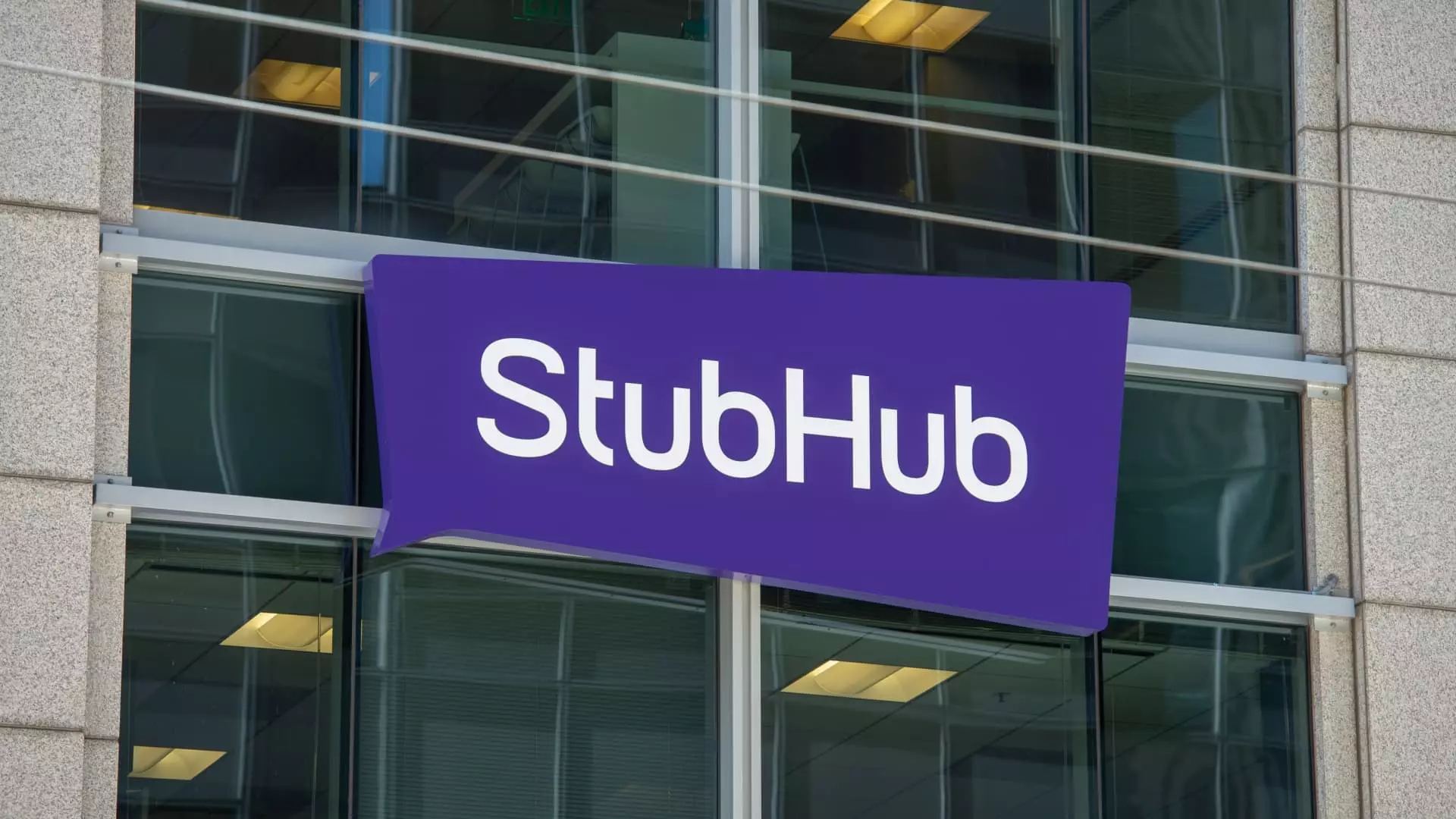The recent lawsuit filed by Washington, D.C., Attorney General Brian Schwalb against StubHub sheds light on the online ticket exchange platform’s alleged unfair pricing practices. The lawsuit accuses StubHub of engaging in deceptive advertising by displaying low ticket prices upfront, only to significantly increase the total cost during the checkout process. Schwalb’s statement condemning StubHub’s tactics as intentional reveals a troubling pattern of prioritizing profits over transparency and consumer trust.
StubHub’s decision to postpone its initial public offering (IPO) until after Labor Day due to challenging market conditions raises questions about the platform’s financial stability and investor confidence. The company’s valuation of over $16 billion contrasts with its postponement of the IPO, hinting at underlying issues that may be exacerbated by the recent legal action taken by the Attorney General. The timing of the lawsuit suggests a potential connection to StubHub’s market performance and strategic decisions.
The lawsuit highlights StubHub’s use of “drip pricing,” a tactic that exploits consumers’ sense of urgency through countdown clocks and hidden fees. By adding substantial “fulfillment and services fees” without clear explanations, StubHub creates a misleading pricing structure that ultimately harms customers. The comparison between the company’s past practice of “all-in pricing” and the current model reveals a calculated strategy to maximize profits at the expense of consumer understanding and trust.
Washington, D.C., residents and visitors are particularly vulnerable to StubHub’s deceptive practices, given the city’s higher per capita spending on live entertainment. The lack of transparency regarding fee calculations and the significant markups on ticket prices exposed in the complaint underscore the detrimental effects on consumers’ financial well-being and trust in ticket sellers. The lawsuit’s emphasis on StubHub’s extraction of hidden fees totaling millions of dollars raises concerns about the broader impact on the entertainment industry and consumers’ access to affordable tickets.
StubHub’s history of facing legal challenges, including the federal class action lawsuit in January, suggests a recurring pattern of misleading customers and prioritizing profit margins over ethical business practices. The platform’s position as a major player in the ticketing industry, coupled with its recent acquisition by Viagogo in a multi-billion dollar deal, raises questions about accountability and regulatory oversight in the online ticket marketplace. As consumers demand greater transparency and fairness in pricing, StubHub’s reputation and future business strategies may face heightened scrutiny and legal consequences.
The lawsuit against StubHub unveils a disturbing reality of deceptive pricing tactics and exploitative practices that harm consumers and erode trust in the ticketing industry. As regulatory authorities and consumer advocates push for accountability and transparency, companies like StubHub must address the root causes of their unethical behavior and prioritize consumer protection. The outcome of the legal action against StubHub may set a precedent for future enforcement measures in the online ticket marketplace, signaling a pivotal moment for industry reform and consumer empowerment.

